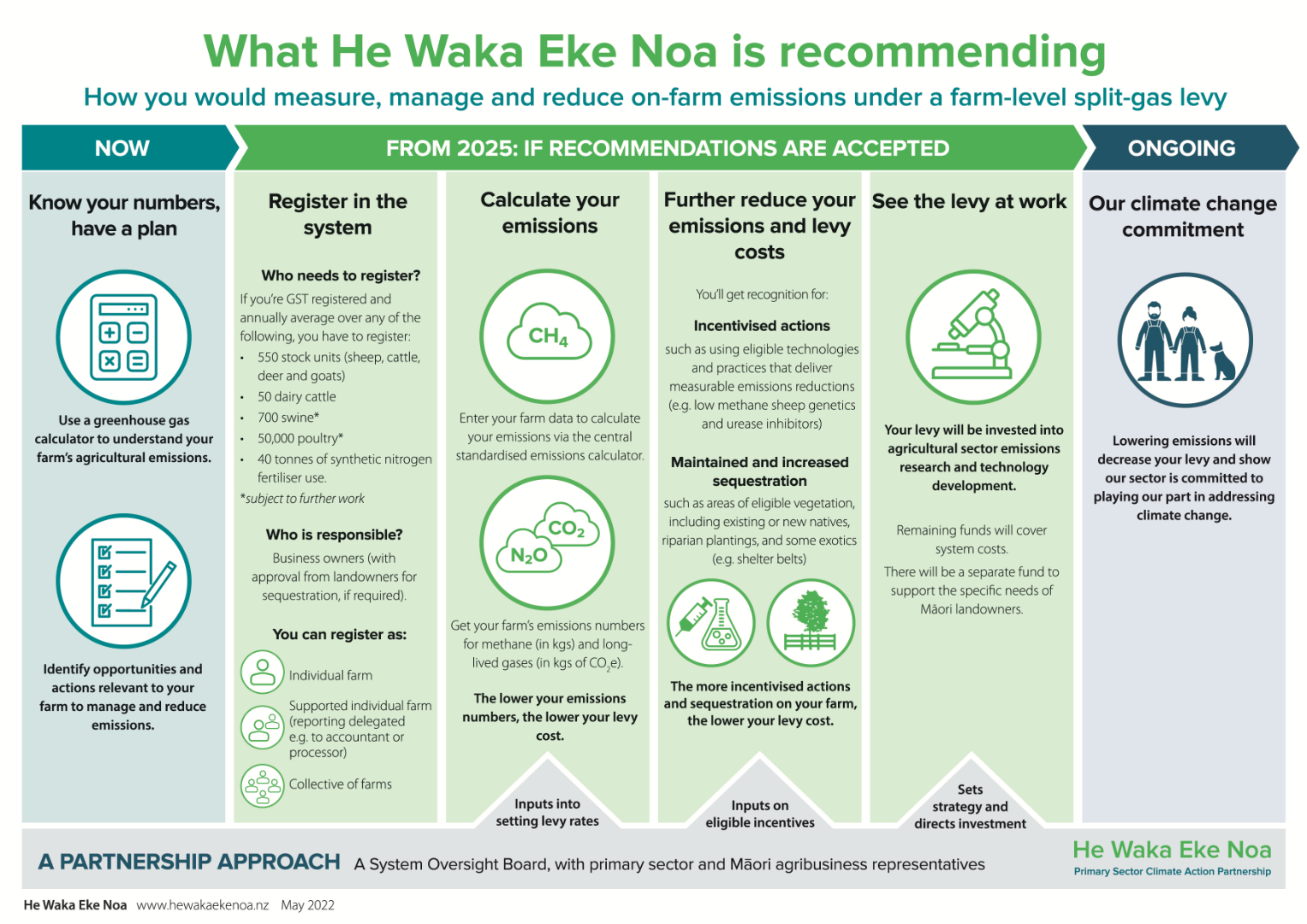He Waka Eke Noa
On the 8th of June He Waka Eke Noa (HWEN) recommendations were released to government. The partnership between government, Iwi and Industry recommends an alternative to agricultural emissions being included in the NZ Emissions Trading Scheme, NZ ETS.
If accepted, HWEN will commence in 2025 in response to the governments legislated targets to decrease methane emissions by 10% in 2030.
It is expected that accountants will play a big role in managing obligations for farmers. Here at Rural Accountants, we will keep ourselves informed and ready to adapt in order to help our farming clients as much as possible.
There are a number of reasons the agricultural industry negotiated an agreement for ag emissions to remain out of the ETS.
-
While the unit price of carbon in the ETS would be market and government controlled, HWEN will allow farmers to maintain some control and voice over setting levy rates. An advisory board will include agricultural sector representation.
-
The ‘Split-Gas’ approach recognises that methane is a short-lived gas while CO2 is a long-lived gas. Regarding contribution to global warming, methane breaks down much faster in the atmosphere than carbon dioxide. It is possible to stop warming by reducing methane while CO2 would have to be zero to stop warming.
-
HWEN can better recognise and incentivise agricultural investment in emission reducing technology. Farmers will maintain more freedom in deciding how emissions can be reduced on their individual farm.
-
The ETS does not recognise riparian planting and shelter belts. HWEN will recognise carbon sequestration on farm in more practical ways and from a wider range of vegetation than the ETS would allow. Farmers will still have the option to enter vegetation into the ETS if they choose.
-
Levy revenue will be reinvested the into agricultural R&D and incentivisation.
See recommendations for farmers in the diagram to the left.
Click here for more information on the report from HEWN.
